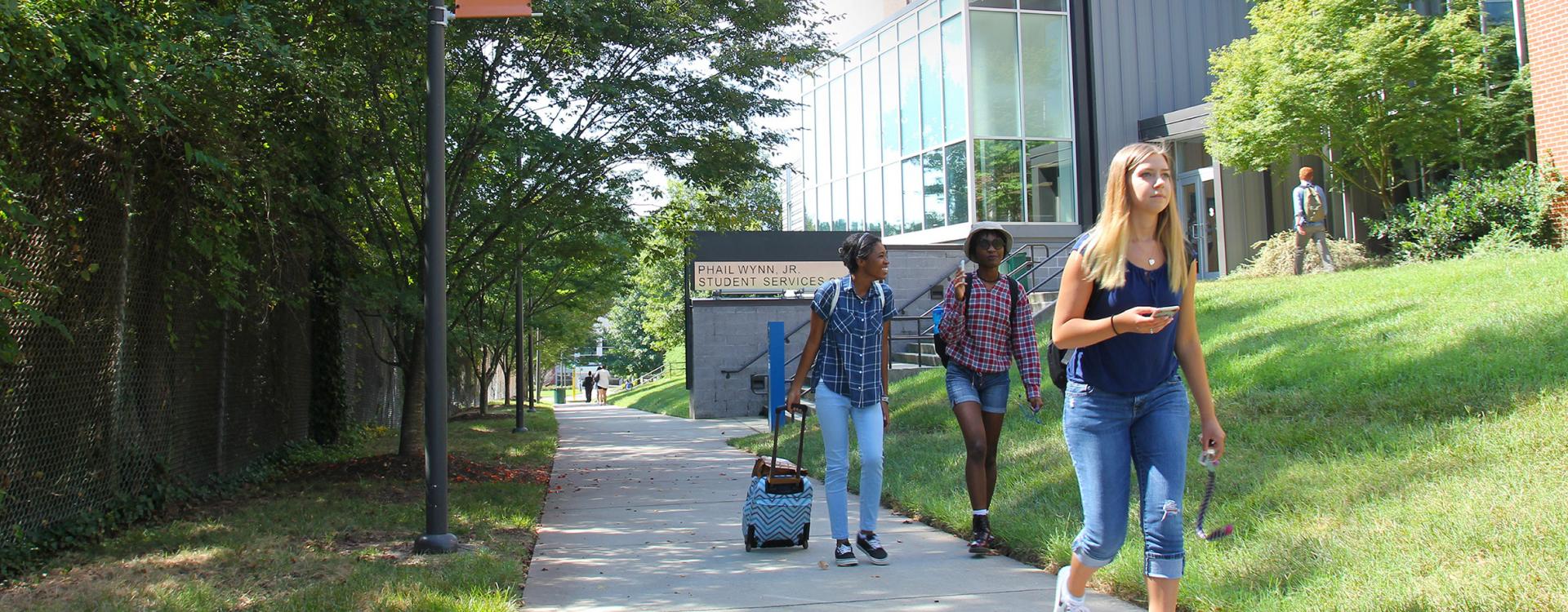Annual Security Report
In compliance with the Clery Act (Jeanne Clery Disclosure of Campus Security Policy and Crime Statistics Act), Durham Tech publishes an annual report on campus crime incidents by October 1 of each year.
The report, called the Guide to Campus Safety (pdf), provides information about safety and security on Durham Tech campuses.
Federal legislation requires institutions of higher education inform prospective members of the community about its most recent crime/incident statistics, crime prevention and security programs and activities, policies concerning the reporting of crime, and related information in accordance with the Campus Security Act, commonly referred to as the Clery Act.
Information for Durham Technical Community College’s campuses is available online to the public through the U.S. Department of Education’s Office of Postsecondary Education website. To access the reports, type the name of the college in the search engine.
The daily crime log also is available for public inspection, upon request, from the College’s Campus Police and Public Safety Office on Main Campus and from applicable sites on the College’s Orange County Campus and Northern Durham Center.
Frequently Asked Questions
- What is the Clery Act?
The Clery Act is a consumer protection law that aims to provide transparency around campus crime policy and statistics. To comply with Clery Act requirements, colleges and universities must understand what the law entails, where their responsibilities lie, and what they can do to actively foster campus safety.
- What is a Campus Security Authority (CSA)?
Campus security authorities include any Durham Tech official who has a significant responsibility for campus security and for certain student and campus activities. More specifically, they include the following:
- Durham Tech Campus Police and Public Safety officers;
- Any individuals not employed by Durham Tech Campus Police and Public Safety department but who have responsibility for monitoring entrance into College property (e.g., security officers employed for special events on College property); and
- Personnel responsible for counseling and student development, academic and personal counseling, and accessibility services.
- Can students be CSAs?
Yes, students who hold positions such as a resident assistant, desk attendant, sit on judicial boards, etc. Are considered CSAs and must be trained.
- Can faculty members be CSAs?
Yes, generally faculty members are not CSAs; however, in the event that a faculty member accompanies students on trips or advise a student group, that faculty member is a CSA for the duration of that position.
- As a CSA, how often do I have to be trained?
CSA training is completed annually.
- I am unsure if I am a CSA, how do I find out?
If you’re unsure, contact the Clery Act Compliance Coordinator Chief Jamaal Walker at walkerj@durhamtech.edu or 919-943-1238.
- What if the student does not want me to provide their information to the police or if I do not know their name? Do I still have to report?
Yes, you still must report. Under the Clery Act, the name of the individual is not required.
- If I am not a CSA, am I still required to report?
Though you are not legally obligated to report, it is highly encouraged.
- What are the consequences for failing to report?
The US Department of Education assesses fines for violations of the Clery Act. The current amount is $59,017 per violation.

